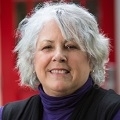Office of Field Education Overhauls Seminar in Field Instruction to Better Serve Instructors and Students
As part of our field education program, Rutgers School of Social Work offers an online seminar in field instruction, also known as SIFI, that teaches field supervisors how to best engage with our students and be a supportive mentor. SIFI runs throughout the year and is self-paced, offering participants the opportunity to learn more about supervision and field placement processes. All participants receive 20 CEUs upon completion of the program.
Recently, the Office of Field Education implemented major changes to SIFI by infusing cultural humility teachings into the curriculum and updating the course content to be more engaging while providing more avenues for self-assessment. Some of the impetus for the reformed SIFI course was derived from student feedback indicating that field agencies and field instructors needed Sexual Orientation and Gender Identity Expression (SOGIE) information and training, which is another component that has been added to the new SIFI curriculum.
“The Office of Field Education is called upon by our CSWE accreditation to prepare field instructors to teach our students in field; that includes being ready to work with them as learners as well as the individuals that they are,” said Mark Lamar, Associate Professor of Professional Practice & Executive Director of the Office of Field Education. “Helping students recognize and understand what competent social work practice looks like is at the core of this, so that they can replicate what they see to create their own successes. This is best done in a relationship between student and field instructor that is based upon acceptance, trust, and mutual commitment to the process.”
Revising and reframing the SIFI curriculum was an important endeavor shared by several faculty and staff within the Office of Field Education and the Instructional Design team. To ensure the training would be reflective and relevant for the vast range of field instructors, representation from multiple team members throughout the School of Social Work was critical. Below, part of the team that conceptualized and implemented the new SIFI curriculum, including Jose Cruz (Senior Program Coordinator), Nicole Oceanak (Assistant Director of Field Education for Online-Blended Programs), Hina Rehman (Senior Program Coordinator), and Nancy Schley (Associate Director of Field Education and Assistant Professor of Teaching), share more about their process and what led them to make these critical changes to improve our SIFI curriculum. Other contributors to the process included Margaret O’Donoghue (Assistant Professor of Professional Practice & Coordinator for the Certificate on Child Well Being Program), Bernardo Hiraldo (Teaching Instructor & Associate Director of Field Education), Amy Strickler (Interim Director, Intensive Weekend Program & Assistant Professor of Teaching), and Lauren Snedeker (Assistant Professor of Teaching & Coordinator for the Aging and Health Certificate Program).
Which updates did you make to the module/unit you worked on?
Jose Cruz: I assisted with updating a section titled "Occupational Emotional Stress & Self Care Presentation,” covering vicarious trauma, self-awareness, self-care, compassionate detachment, and compassion satisfaction. The presentation also reviewed supervision and how supervisors could create a safe space to discuss client-related issues using transparency and reflective strategies. SAMHSA's Eight Dimensions of Wellness, which can serve as a framework to define and enhance overall well-being, was also discussed. This model can guide field instructors and students when assessing coursework and field practice-related issues.
Hina Rehman: I worked on two modules: evaluation and cultural humility. For the evaluation module, I ensured that the information was up to date. Particularly due to COVID, many of our processes did change slightly, so we had to make sure these changes were reflected in the module. We also had some programmatic changes that were recently put into effect that needed to be updated.
For the cultural humility module, we made several changes. The main and most noticeable changes were the title of the module and the fact that it is now split into two different modules (cultural humility in theory and cultural humility in practice). The reason for the name change was that we as a team felt like the old title, cultural competency, didn’t truly reflect how we as a school and as social workers think. The “competency” of a topic alludes to the fact that one has mastered that topic (i.e., become fully competent in it), but in reality, we can never really master any culture and that culture’s nuances; it is a constant learning opportunity for us, and we need to acknowledge that there’s always room for growth!
Cultural humility in theory covers general concepts and reiterates that culture can mean so many things: race, religion, gender identity, gender expression, socioeconomic status, sexual orientation, etc., and not just one’s ethnicity. There are readings and a PowerPoint about the topic that detail how a supervisor can support their student interns and mitigate some of those power imbalances when it comes to the supervisor/supervisee dynamic. We also touch upon the new liberatory consciousness framework our School has adopted, which was coined by Dr. Barbara J. Love and reconciles how to live within an oppressive society while combatting oppression within the society.
Cultural humility in practice has some more interactive elements, particularly videos and a quiz on human variation, that will help supervisors better understand a student’s perspective and desire to be able to learn in a safe space. We added some self-assessments and guided questions throughout the module so participants can observe any changes in their thought process throughout the time they spend working on the module.

Nancy Schley: My area of expertise is supervision and consultation. I contributed guidance relating to orienting students to agency settings, promoting students’ beginning role definition within the agency structure, managing beginning anxiety as a teacher/learner, assigning progressively more complex tasks, understanding theoretical constructs pertaining to parallel process, relational supervision, attachment theory, stage models, motivational Interviewing techniques, trauma-informed supervision, solution-focused problem solving, and professional use of self. These theoretical underpinnings, expressed within a trusting learning/working alliance, are fundamental to field instruction.
Nicole Oceanak: I updated our learning styles module. We felt this module was important to refine and revisit to add more information about how best to work with our diverse student population. There are newly added videos, interactive materials, and lectures.
Why did you make these updates?
J.C.: The NASW Code of Ethics was updated in 2021 to include language regarding the importance of professional self-care. Self-care is necessary to provide effective and ethical social work practice. This training would consist of information consistent with the liberatory conscientious framework, a paradigm added to the School of Social Work's curriculum. Media such as videos were also included, along with pre and posttests and questions related to recent peer-reviewed studies or articles.
N.O.: Considering the latest research, just focusing on learning styles of the student alone was not as inclusive as it could have been. By changing the module to teaching and learning we were able to focus more on best practices for working with students who all process information differently. There isn’t a one-size-fits-all model for field placement learning experiences, and sometimes adaptations need to be made to allow for differing styles of either instruction or learning. It also opens up the dialogue between field instructor/supervisor and student to both share how they envision the relationship and what tools might be helpful to include in the supervisory experience.
H.R.: We had gotten feedback from some of our students that they would like to see increased inclusivity at their field placements. Students don’t always feel comfortable sharing certain things with their supervisors and were at times unsure of how to navigate difficult conversations, so the cultural humility modules include helpful information for supervisors to create a safe space for their students. We also wanted to ensure that our field placements’ values align with the School of Social Work’s values.
N.S.: To provide up-to-date readings and guidance about field instruction to enhance the supervisory experience of both field instructors and students. Both are in partnership in the learning/working relationship. Establishing mutuality and reciprocity in the supervisory relationship is an empowering process for supervisors and students.
What do you hope field supervisors will take away from the new SIFI course updates?
J.C.: Supervisors should be able to discuss the link between the NASW Code of Ethics and the topics covered. They should also be able to identify ways of applying these concepts in social work practice. Using new media will help supervisors discuss different aspects of a particular topic.
N.O.: I hope the overall SIFI course encourages field supervisors to consider diversity in new ways whether via learning styles, professional experience, race/ethnicity, gender identity, or so many others. Each student is unique, which requires field instructors to be adaptive to ensure the student has the best experience at that field placement. I hope that field supervisors also take time to be reflective about their supervisory styles and consider if there are any ways they can be a better field supervisor based upon what they learned.
H.R.: I hope supervisors notice that we are actively working to ensure our information is accurate, up-to-date, and engaging. We wanted to add some different elements into the modules in addition to the valuable readings/articles, such as interactive quizzes, self-assessments, and videos. We also want to convey that we fully embody the values of the social work Code of Ethics. This applies not just to one’s clients but one’s student interns as well.
N.S.: Student supervision is a meaningful, purposeful, professional endeavor in which supervisors gain as much professional gratification and development as the student gains in skills and experiential learning. Field instructors are the heart and soul of field education.
How do you hope the SIFI course updates will impact our students?
J.C.: Students would become familiar with how the NASW Code guides practice related to these topics. They will also engage with supervisors who are familiar with findings and points of discussion in recent peer-reviewed literature.
N.O.: I hope that the SIFI updates allow for students to have a stronger relationship with their field supervisor. Our students can be assured that we are working with our field agencies to train them on the best practices related to the supervisory experience and expectations of our program and School. I believe having a more well-trained supervisor will help our students in getting the best learning experience possible.
H.R.: I think it’ll help students see that we do truly value their experience at their field placements and are very receptive to their feedback. We do this work for the students to help shape the next generation of social workers, so it’s essential that we are responsive to the needs of our student body. Students will also notice that we strive to embody the values of social workers in accordance with our Code of Ethics to ensure we create and foster an environment that is inclusive, inviting, and ideal for learning.
N.S.: Students will gain wholeheartedly from enhanced supervisory relationships as this is the key relationship that guide students towards growth and mastery. Establishing a secure supervisory, working relationship provides a pathway to the exploration of the professional self.
Do you have any other thoughts to share?
J.C.: This experience allowed staff to collaborate and provide information regarding essential social work topics based on their expertise and vantage point. It is also crucial for students and supervisors to be aware of how the framework embraced by the School has guided this necessary training.
N.O.: We strongly encourage those who may be SIFI certified but haven’t taken the course in several years to register once they begin working with one of our students.
H.R.: This was truly a collaborative effort across our field team, and it couldn’t have been possible without all our committee members working tirelessly to launch this in the Fall of 2021.



